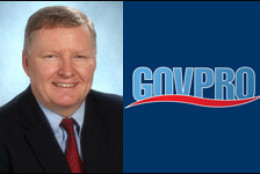federal pay
-
In order to counter funding reductions due to sequestration, Customs and Border Protection has begun sending furlough notices to many of its 60,000 employees. An officer in the union representing CBP agents says these measures amount to a 40 percent reduction in salaries.
March 08, 2013 -
The House Rules Committee voted to fast-track legislation extending the pay freeze for federal employees through the end of the fiscal year. Federal workers are now slated to get a 0.5 percent pay increase in March when a stopgap continuing resolution expired. However, the measure approved by the House Rules Committee, introduced by Rep. Ron DeSantis (R-Fla.), would block that increase.
February 13, 2013 -
President Barack Obama will recommend a 1 percent pay increase for federal employees in his fiscal 2014 budget request, according to federal-employee unions. The pay increase will apply to both civilian federal workers and military members. The White House is expected to release its full budget request next month.
February 08, 2013 -
DoD's 2014 budget will ask Congress for a 1 percent increase in military pay, down slightly from previous projections.
February 07, 2013 -
With the House postponing a vote on extending the federal pay freeze, feds are back on course to get a slight pay increase in March — for the first time in two years. But Andrew Biggs, a resident scholar at the American Enterprise Institute and an expert on public-sector compensation, says that the pressing budget issues the government faces means the issue of federal pay probably isn't going anywhere.
February 04, 2013 -
Michael Keating, senior editor for Government Product News, joins host Mark Amtower to talk about the GSA scandal, and other big stories in 2012. January 7, 2013
January 07, 2013 -
The U.S. Court of Appeals for the Federal Circuit in October ordered Congress to pay six federal judges years of back pay.
December 14, 2012 -
Employee satisfaction across the federal government is sagging, according to the 2012 Employee Viewpoint Survey released by the Office of Personnel Management Wednesday. While there weren't any drastic drops, scores governmentwide were down in every major measure, including employees' satisfaction with their jobs, supervisors and pay.
November 21, 2012 -
The gap in pay between federal employees and private-sector workers jumped eight percent since last year, according to new data presented at a Federal Salary Council meeting Friday. On average, federal employees earn 34 percent less than their private-sector counterparts, according to the council's analysis.
October 19, 2012 -
Looking for something to take your mind off the pending pay freeze extension? If so, consider the prospect of higher taxes, lower take-home pay and higher health insurance premiums, Senior Correspondent Mike Causey says.
September 14, 2012 -
Despite the prospect of an extended pay freeze, many nonpostal workers have their "wigs" to keep them warm, Senior Correspondent Mike Causey says. So, how do you get a 3 percent raise while salaries are frozen at 2010 levels?
September 13, 2012 -
President Barack Obama told congressional leaders Tuesday that he was implementing a 0.5 percent pay increase for federal employees that would go into effect next April. Congress is expected to pass a Continuing Resolution when it returns to Washington in September to avoid an Oct. 1 government shutdown. Obama extended the pay freeze through the duration of that CR.
August 22, 2012 -
NTEU president Colleen Kelley and Steve Watkins and Andy Medici from the Federal Times will talk about some of the big a wide variey of issues affecting federal workers. August 1, 2012
August 01, 2012 -
If one expert told you your house was overpriced by 58 percent and another said it was undervalued by 28 percent, you might want to get a third opinion. Maybe a fourth too. And that's the gap between experts trying to figure out the federal vs. industry pay gap, Senior Correspondent Mike Causey says.
July 27, 2012 -
What would happen if you put six people in a dark room with an elephant, a rhino and a giant squid and gave them 30 seconds to describe what they discovered? Odds are, the survivors would give widely varying accounts, which may explain those studies showing you are both overpaid and underpaid, Senior Correspondent Mike Causey says.
July 26, 2012



